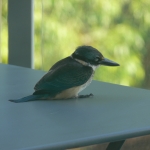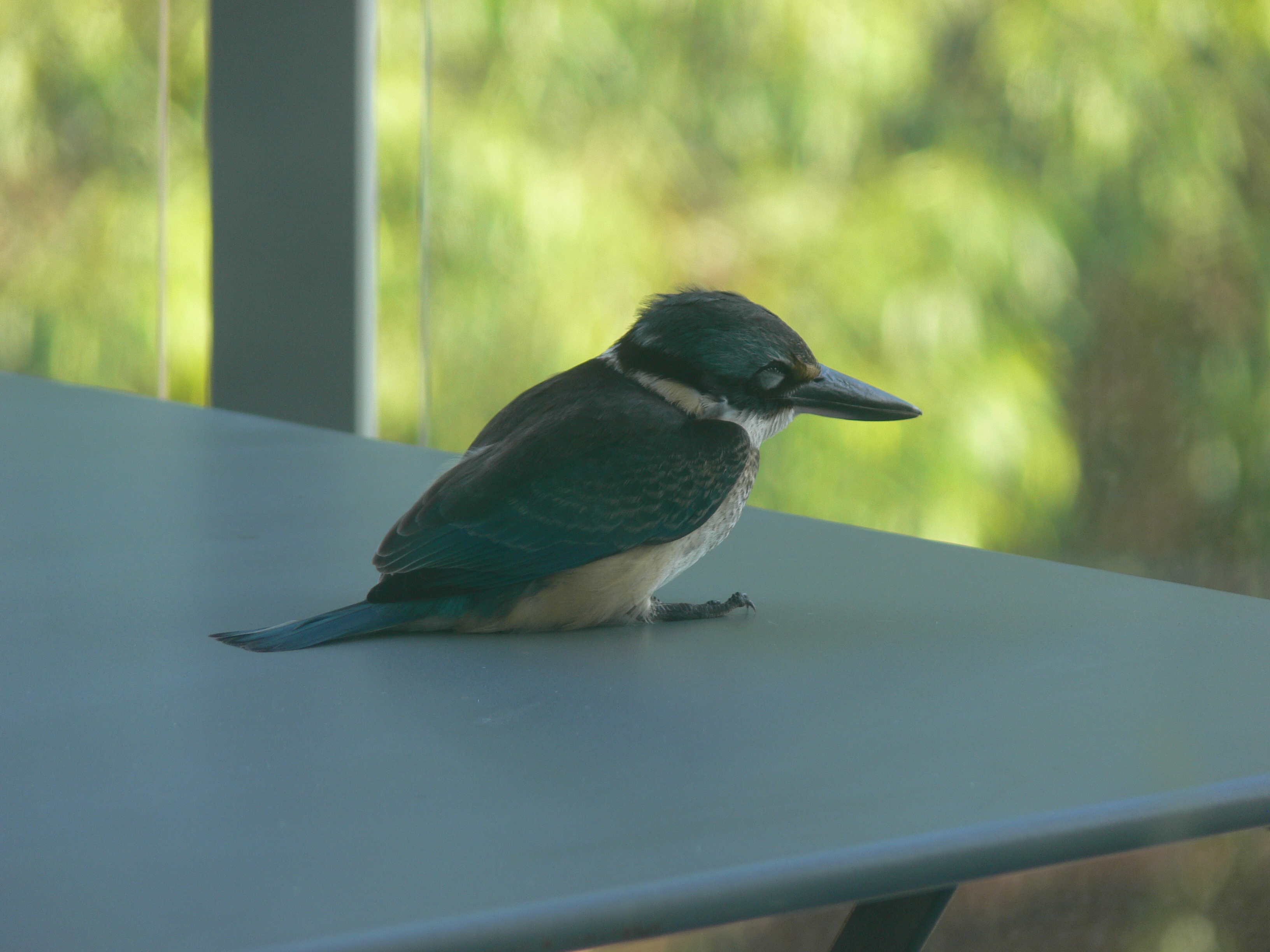 A thud at the living room window drew my attention from my book. Not three feet from my head, the impact had left a smear, and there on the table where it had landed after rebounding was a small bird lying on its side. A closer look revealed a long Kingfisher beak, brown feathers tinged with blue, a white collar and a white chest that appeared to be moving. Behind it, an Indian Myna hopped around curiously.
A thud at the living room window drew my attention from my book. Not three feet from my head, the impact had left a smear, and there on the table where it had landed after rebounding was a small bird lying on its side. A closer look revealed a long Kingfisher beak, brown feathers tinged with blue, a white collar and a white chest that appeared to be moving. Behind it, an Indian Myna hopped around curiously.
I recalled a holiday to Wilson’s Promontory in my childhood, when a Rainbow Lorikeet flew into the rangers hut, then threw itself against the windows trying to get out. After four or five attempts, my father held an open magazine in its way, and managed to catch it. The rangers took it outside, but its fellow Rainbow Lorrikeets flocked in to bully the dizzy bird, so they took it back in to care for it until it was ready to join society again.
With this in mind, I kept an eye on my new neighbour, ready to send any cannibals packing. Google showed that it was a Collared Kingfisher, a native to Australia, but not one you’d expect to see in the heart of Sydney. Its normal habitat is the mangroves of North and North Eastern Australia. While I was googling, my friend had managed to sit up. He remained there for an hour, looking morose.
Eventually, I began to worry that he would need help, so I called W.I.R.E.S. This free service provides support and advice regarding native animals. The friendly woman who answered quickly suggested I throw a towel over the bird and take it to a local vet who offers free care for injured native birds. Although Australians do love exotic nature, we’re very proud and protective of our native species. We’re constantly fighting the species that our silly white ancestors brought from Europe to make the country more like home. Just look at lantana and cane toads. Organisations like WIRES deserve more credit than they get.
I grabbed an old towel and moved slowly towards the balcony, but as soon as I began to open the door, the Kingfisher flew off. He’d been playing possum.
